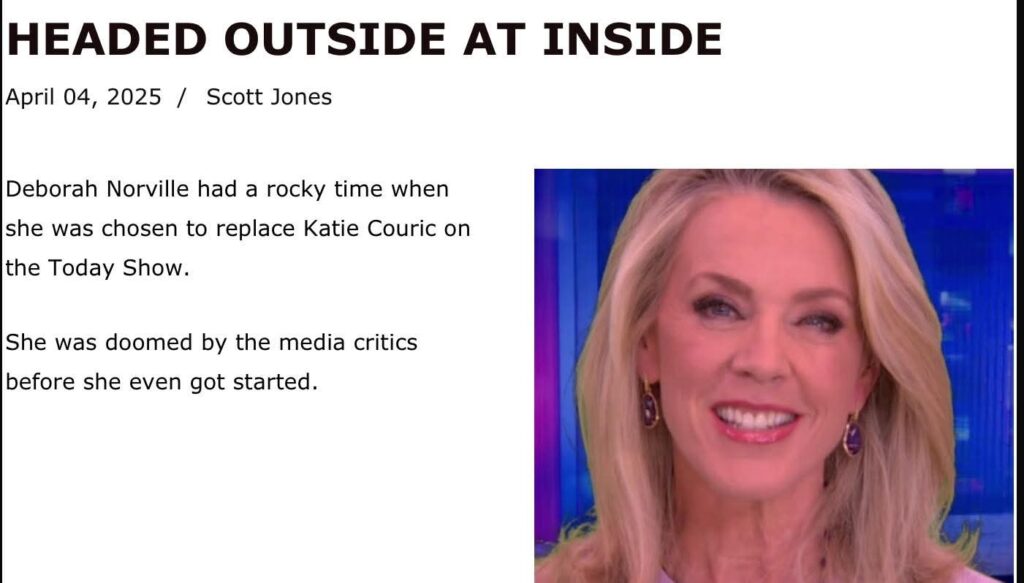As longtime patrons of Doug’s Place know, I’ve been part of Rock 104 for all but its first 365 days. I was at the competition.
The year of 1995 marked what I looked at as the Airwave Battle Royale. A classic rock station not named Rock 104 had just launched circa New Year’s Day of 1995. Rock 104 in its present form would debut on April 1, 1995.
I’d eventually get to hear the rebooted 104.5FM—but not before emergency dental surgery. On April 1 of ’95, I was supposed to have my usual Saturday afternoon show, but I had to call in sick due to throbbing pain overnight. Things improved in time for the Sunday show—ironically, a long-running classic rock-by-request show on what was billed as the state’s top-rated hit music station.
Along the way, word got to me that Rock 104 finally debuted after about a year of silence. The previous incarnation of 104.5FM was forced off the air due to unfortunate circumstances.
When I did tune in during Rock 104’s infancy—the following day—I don’t mind telling you I was not impressed. Sure, I was familiar with the music. The first hour I was able to sample just about matched what I would do on a Sunday afternoon.
My first evaluation of 104.5FM came around seven or eight o’clock that Sunday night, April 2 of ’95, (keep in mind, the station had not yet been tested during a crucial daypart — such as morning or afternoon drive). I was certainly familiar with the music selection. The public service elements were on par with those of sister station B95. However, certain liners and sweepers—such as “Scorching the pine trees with 100,000 watts of classic rock and roll!!”—seemed a bit over the top for this area, I thought.
Did this particular competitor catch 104.5FM during a so-called soft launch? I can’t say with certainty. But my hunch after an hour of sampling was this: This won’t last. Sure, the station’s owned and operated by people who love the craft and the area. Still, my prediction at that time was that Rock 104 would probably be around for a year or two and then change formats.
Why? Ours was a different world roughly three decades ago. Even though this market seemed ideal for classic rock at the time, the format was not handled properly from the time I arrived in the Pine Belt in 1992 through 1995. There was Z-101. There was Y-104—a return as a rock station from years as Mix 104 (sometimes they were Adult Contemporary, other times Top 40; competitors, myself included, mockingly called it “Mixed Up 104”). Those rock stations came and went—quickly.
Well, it didn’t take long to realize my prediction about Rock 104 was wrong. In the months that followed, Rock 104 gained steam. One of their promotions made local TV news. Billboards and TV spots with Rock 104’s logo clearly visible were hard to ignore. The Rock 104 van was on the streets—often—acting as a mobile billboard. Friends were talking about this rebooted 104.5FM—frequently. Maybe Rock 104 and its parent company learned lessons from certain others’ mistakes?
And what was the state’s top-rated hit music station, where I was, doing in response? To an extent, the password was — “imitation.” We went all classic rock in the morning and midday dayparts for several weeks.
Beyond that, we didn’t do much, to be honest. After all, not long after New Year’s Day of 1995, some unfortunate drama spilled on the air—less said, the better—and things pretty much unraveled from there.
The drama (now is not the time to go in-depth about it; perhaps another time) didn’t affect my Sunday show. By then, the show and I marched to the beat of our own drums. The calendar may have said we had more than enough time as a station to rebound from the drama. But, because of the drama’s magnitude, our year was already undone—even before 104.5FM’s carrier signed back on under the new Rock 104 identifier.
Months later, Rock 104’s mission was just about accomplished. As Airwave Battle Royale raged on—even if we weren’t doing a lot of raging—listeners of my Sunday show would call me up to say something like this: “Doug, we love you and your show, but the moment you sign off, we go to Rock 104 until your next show.” And no, these conversations wouldn’t end up on the air. At the risk of bragging, the final results reflected their takes.
Usually, listeners’ reactions on the phone don’t match up with the ratings results. Same with the buzz on the streets. But they did in 1995.
When the final numbers came in, I was away on family business—but wasn’t surprised to learn every daypart took a hit (I would later learn my slot on Sunday was the lone bright spot). Nearly every loss was the gain of Rock 104. To be fair, “the other rock station” did reasonably well too, as I recall—but changed format and ownership years later. When those report cards for radio came out, I had just finished college and was slowly starting a TV career. But I never shut the door entirely on radio. It was my first professional love, after all—and still is.
Near the end of this dark year of 1995, was there a promotion after all? Nope. For being the state’s top-rated hit music station’s only saving grace, our brilliant leader (yeah, right) thanked me by reducing my hours.
I’ll admit, the boss and I weren’t thinking alike near the end of the day. But consider this: The Sunday show I was hosting was all-request. No leader’s computerized log to adhere to. I had free rein. As previously agreed upon, if the rock song was a hit in the mid to late ’60s, ’70s, or early ’80s, it worked on my show. We mutually made exceptions for songs like “Stairway to Heaven”—which was never released as a single, yet it’s one of Led Zeppelin’s best-known works.
Also, consider that my boss from ’92-’96 had a myopic view of the market. He famously stated in a staff meeting in ’93 that he wanted our spot on the dial to be “a Hattiesburg station.” However, a lot of literature about the state’s top-rated hit music station, at that point in time, clearly indicated that it was dually licensed to serve Hattiesburg and Laurel. The station’s “Laurel-Hattiesburg-Meridian” experiment had taken place only a few years earlier; thus, the 18-month project was fresh in a lot of listeners’ minds. Given our extremely strong signal and potentially wide coverage area, focusing solely on Hattiesburg was easier said than done. Perhaps a longer discussion for another time.
So, here I am, saving a station from major embarrassment in 1995 in the face of heated competition—and this is the thanks I get? Yup, time to move on. I got a little more serious about TV. I even thought about leaving these neighborhoods I dearly love—but I didn’t want to.
Well, in 1996, renewed hope and prosperity. Further doors opened on local television. And I was able to take my radio talents to Rock 104.
My employment started on April 1, 1996—on the first anniversary of Rock 104 in its present form. Work began on molding and shaping what you know today as “RockTrax with Doug Morris.”
Roughly one year before the maiden voyage of “RockTrax,” I never thought 104.5FM, doing business as Rock 104, would make it to its third anniversary. During that moment in time, I never even thought about crossing the street. And yet, here we are—united in our beliefs in serving public trust and entertaining listeners—as we celebrate Rock 104’s 30th anniversary.
Much like the station I left, Rock 104 has a strong signal. The difference? Rock 104 embraces its entire coverage area. We’re well aware that the market extends beyond just Hattiesburg. Rock’s parent company and I are united in entertaining our listeners and serving the public trust. We recognize that the needs of those in Hot Coffee and Soso are just as important as those in Hattiesburg and Laurel. Unlike certain broadcasters, we know that Bay Springs is not on the Mississippi coast.
As much as we would’ve loved to start celebrating 30 years of Rock 104 on Saturday at Hubfest, while giving a nod to our neighbors at 40-year-old B95, Mother Nature had other possible ideas. Festival officials erred on the side of caution and made the call to cancel the festival late Friday afternoon.
Thankfully, we have a treasure trove of memories that will be gradually revealed from @WXRRFM on Facebook and @rock104fm on Instagram. Give my radio friends a like and follow if you aren’t already.


